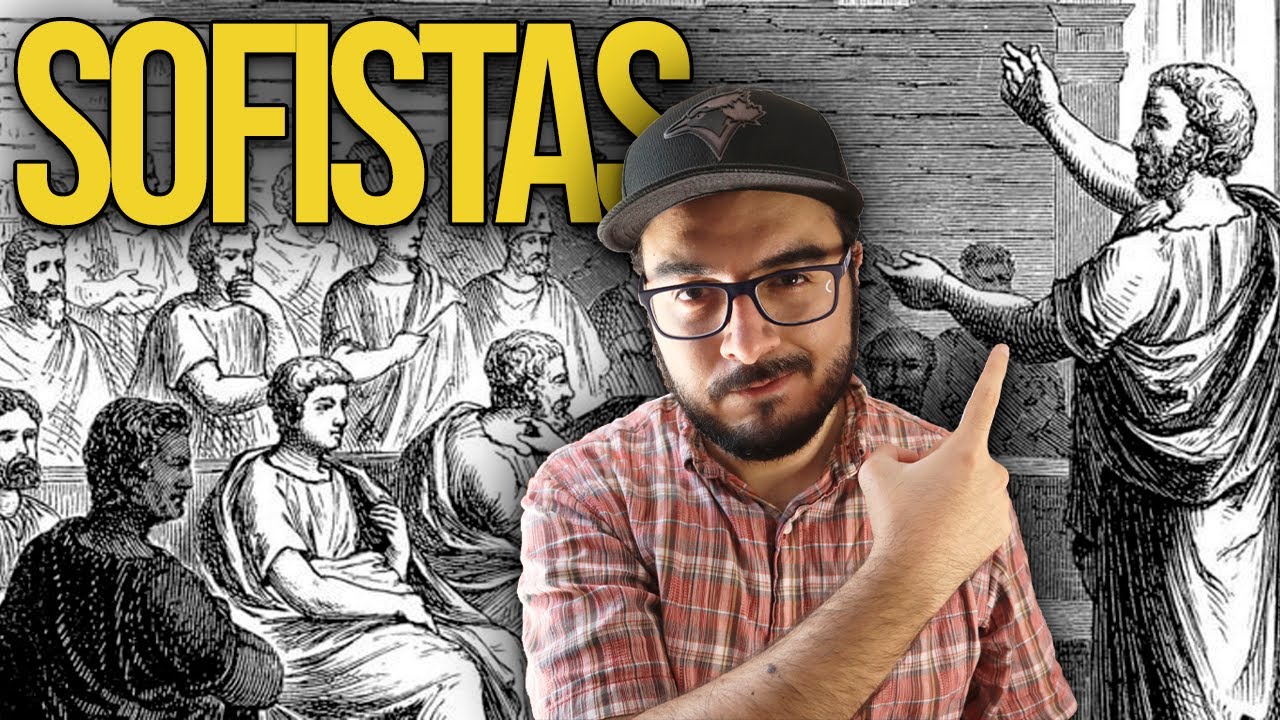Sofistas (resumo) | FILOSOFIA
Summary
TLDRThe sophists were itinerant teachers of rhetoric and oratory in ancient Greece, specializing in the art of argumentation and persuasion. They taught students to excel in public speaking and political debate, particularly in democratic assemblies. Although initially respected, their critics, including philosophers like Plato and Aristotle, accused them of manipulating the truth for personal gain. Key sophists like Protagoras and Gorgias presented radically different views on truth—Protagoras believed in relativism, asserting that truth is subjective, while Gorgias argued that nothing can truly be known or expressed. Despite the criticism, sophists played a key role in democratizing access to oratory and influencing Athenian politics.
Takeaways
- 😀 Sophists were itinerant teachers of rhetoric and oratory, traveling from city to city to teach those who could afford their services.
- 😀 They taught students how to argue effectively, persuade others, and formulate balanced arguments for and against a given topic.
- 😀 Their main goal was to prepare young people for political life and make them better citizens, especially in democratic assemblies.
- 😀 The emergence of sophists around the 5th century BC coincided with a time of intense political struggles in Greek civilization.
- 😀 Few fragments of sophists' works remain, and most of the information about them comes from their philosophical opponents, making their true thoughts difficult to fully understand.
- 😀 Initially, the term 'sophist' had a positive meaning, referring to a great teacher or wise person, but over time it became associated with deception and manipulation.
- 😀 Critics like Socrates, Plato, and Aristotle accused the sophists of caring more about winning arguments than defending the truth, leading to their negative reputation.
- 😀 The negative image of sophists gave rise to the term 'sophism,' which refers to misleading arguments that appear correct but are meant to deceive.
- 😀 Despite their critics, the sophists played a key role in democratizing access to oratory and rhetoric, which contributed to less oligarchic politics in Athens.
- 😀 The sophists believed that truth was relative, with each person's or society's perception of truth being valid, depending on their perspective.
- 😀 The two most famous sophists, Protagoras and Gorgias, had differing views on truth: Protagoras believed truth is relative, while Gorgias argued that nothing truly exists and reality cannot be accurately expressed.
Q & A
What was the primary role of the sophists in ancient Greek society?
-The sophists were itinerant teachers who taught rhetoric and oratory, focusing on the art of speaking well and arguing persuasively. They aimed to prepare young people for political life and help them succeed in democratic assemblies.
Why were the sophists considered itinerant teachers?
-The sophists were itinerant because they traveled from city to city, offering their teachings in exchange for payment. They spread their knowledge across different regions, making their expertise accessible to those who could afford it.
How did the sophists influence Athenian democracy?
-The sophists played a significant role in democratizing access to oratory and rhetoric, which contributed to a less oligarchic political system. Their teachings enabled individuals to engage in public debates and assert their views in democratic assemblies.
What did the sophists teach their students to do?
-The sophists taught their students how to argue effectively, speak persuasively, and formulate arguments both for and against any given idea or topic. Their teachings helped students excel in public speaking and political debates.
Why is it difficult to fully understand the teachings of the sophists?
-Most of the remaining records of the sophists' works are fragments, and the accounts that exist were written by their opponents, such as Plato and Aristotle. These sources are often biased, making it challenging to gain an unbiased understanding of their thoughts.
What is the origin of the negative connotation of the term 'sophist'?
-The term 'sophist' initially had a positive meaning, referring to a wise teacher. However, due to criticism from philosophers like Socrates, Plato, and Aristotle, the term evolved to imply a deceiver or impostor, as sophists were accused of manipulating truth for the sake of winning arguments.
How did the term 'sophism' come about?
-The term 'sophism' arose from the negative image of the sophists. It refers to arguments that appear to be correct but are actually misleading, designed to deceive or mislead others rather than convey the truth.
What was Protagoras' famous quote, and what does it imply?
-Protagoras famously said, 'Man is the measure of all things, of those that are as they are and of those that are not as they are not.' This suggests that truth is relative, and what is considered true depends on the individual or social group perceiving it.
How does Gorgias' philosophy differ from Protagoras'?
-While Protagoras believed truth is relative and depends on individual perception, Gorgias took a more extreme stance, claiming that nothing exists, and even if something did exist, it could not be known or communicated. For Gorgias, reality could never be fully expressed through language.
What was Gorgias' view on the relationship between thought, speech, and reality?
-Gorgias believed that there is a vast gap between thought, speech, and reality. Since we perceive the world through our senses and express it through language, there can never be a true representation of reality, only distorted or subjective representations.
Outlines

Cette section est réservée aux utilisateurs payants. Améliorez votre compte pour accéder à cette section.
Améliorer maintenantMindmap

Cette section est réservée aux utilisateurs payants. Améliorez votre compte pour accéder à cette section.
Améliorer maintenantKeywords

Cette section est réservée aux utilisateurs payants. Améliorez votre compte pour accéder à cette section.
Améliorer maintenantHighlights

Cette section est réservée aux utilisateurs payants. Améliorez votre compte pour accéder à cette section.
Améliorer maintenantTranscripts

Cette section est réservée aux utilisateurs payants. Améliorez votre compte pour accéder à cette section.
Améliorer maintenantVoir Plus de Vidéos Connexes
5.0 / 5 (0 votes)






